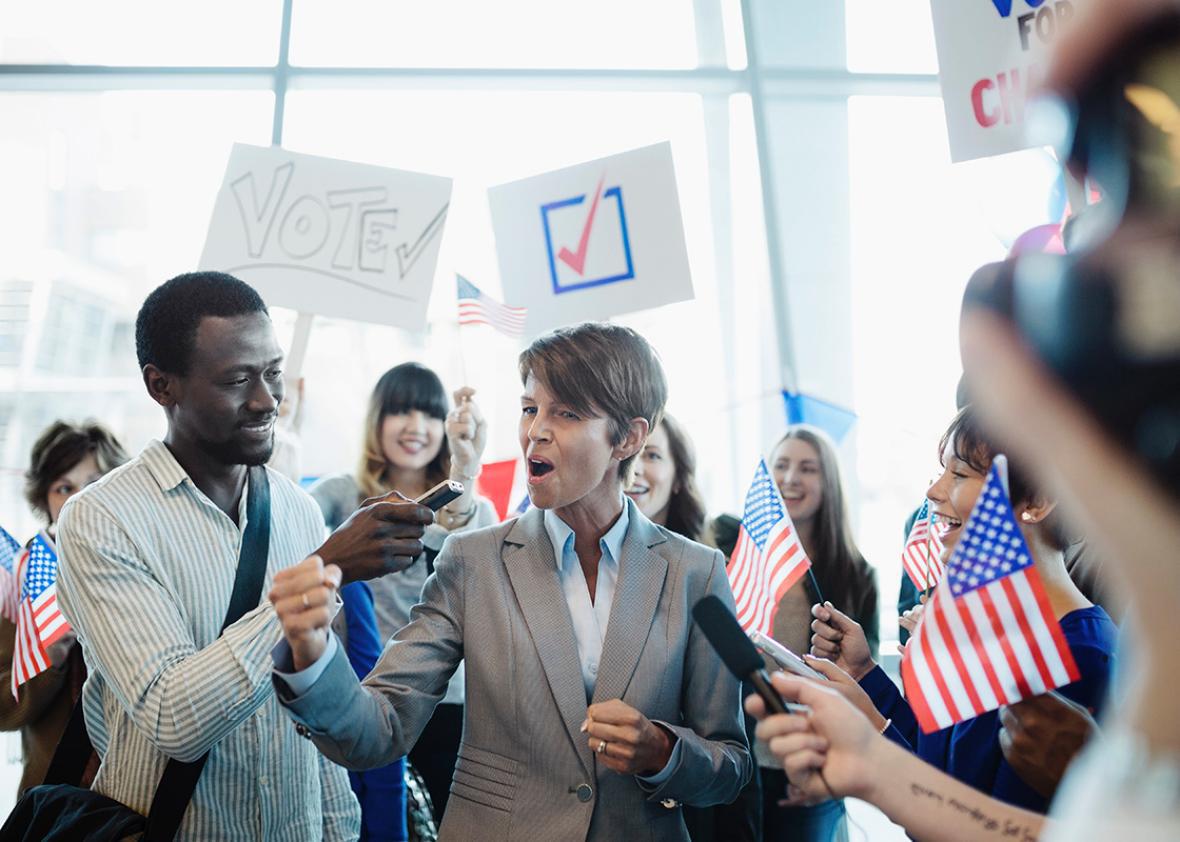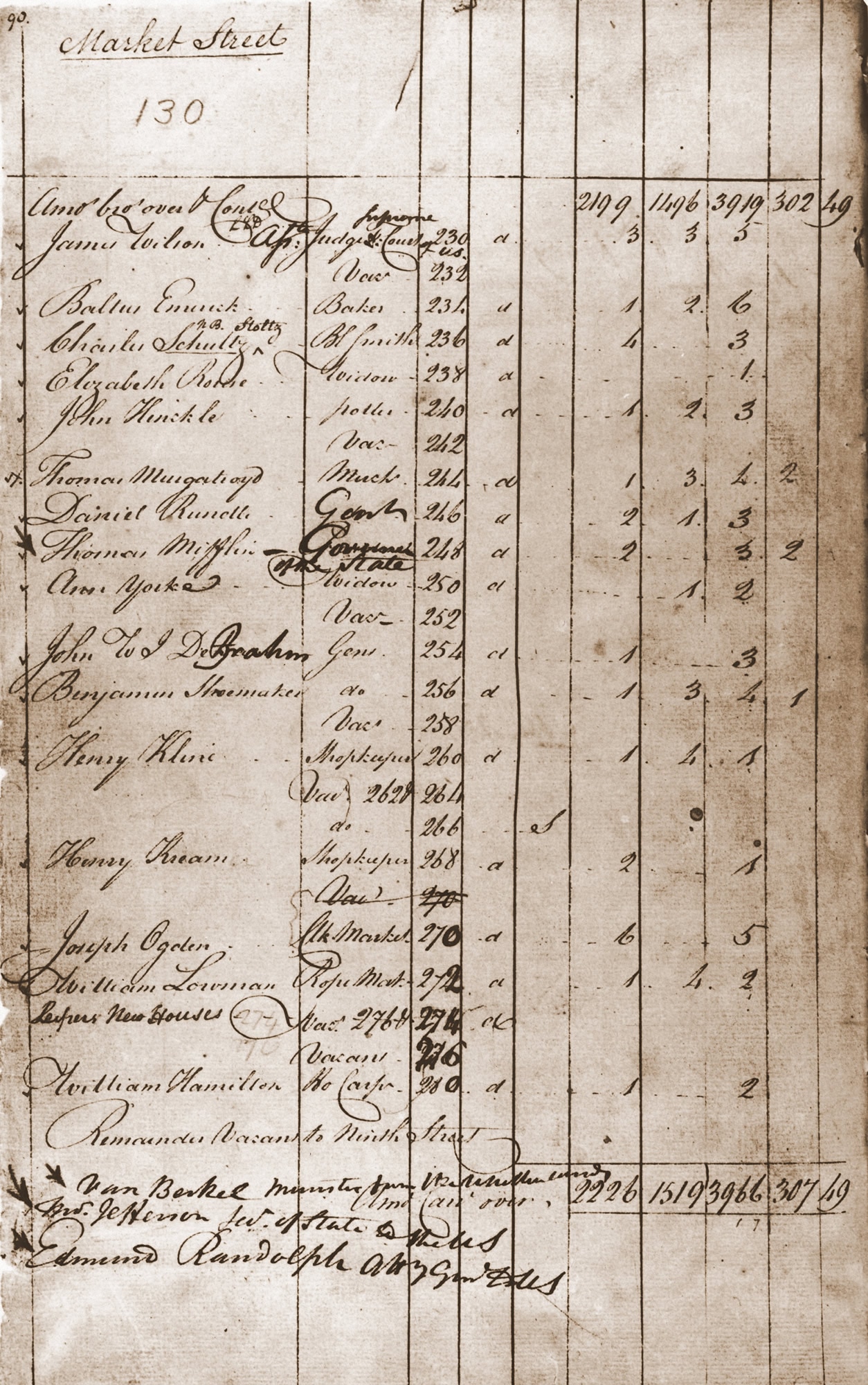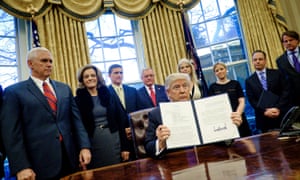This brings together a lot of topics: public opinion, polling, media, polarization, and the duty of citizens and opinion leaders to be responsible consumers and producers of political information (news literacy).
Category Archives: Civic Knowledge: American Government and Politics
Confronting Deep Fakes and Other Forms of Deception
How can truth prevail in an information environment flooded with deception, including now deep fakes? The reporter in this video segment suggests (1) check the source and (2) Google it. This parallels what I see as the two most essential skills citizens need for navigating today’s incredibly complex information environment. First, they need to be aware of trustworthy and untrustworthy sources and take steps to fill their personal information environment with the former and not the latter. Second, when they encounter an unfamiliar source, they need to know trustworthy sites that evaluate the trustworthiness of sources, like fact-checking sites, Ad Fontes Media, and MediaBiasFactCheck.com. (They also know about the significant shortcomings of sites such as Allsides.com). I don’t think “Googling it” is sufficient, however. It is unknown whether Google’s basic search algorithm adequately filters out fraudulent political information. We know for certain that Google’s YouTube algorithms do not.
Empowering citizens with these skills is essential for protecting the commons from deceptive and fraudulent political communications. An article in Fulcrum points to an additional protection: laws prohibiting the publishing of deep fake videos during an election campaign without disclosing that they are fake:
Gov. Gavin Newsom has signed legislation that prohibits distribution of these artificially created or manipulated videos within 60 days of an election unless the video carries a statement disclosing it has been altered. Texas enacted a similar law late last month.
That the nation’s most populous state, where lawmaking power is entirely in Democrats’ hands, would mirror a new policy in the third-largest state, formulated entirely by Republicans, is a clear indicator that the new world of deepfakes is causing big-time bipartisan worry among politicians. “
While I do not have an opinion at this point about the best regulatory solutions, it seems that both reforms are needed: a radical improvement in citizen political information literacy skills and a new legal framework governing the distribution of political information.
Two Videos of State Legislative Speeches that Can Provoke Discussion of Religious Freedom and Discrimination
‘Senators, I’m asking you, put the stones down, and let’s trust the women who are in this room.’ — This pastor used a Bible story to speak out against a law that would ban early-term abortions in her state pic.twitter.com/I6kP0QFD5a
— NowThis Impact (@nowthisimpact) March 27, 2019
State Rep. Stephanie Borowicz prayed for Trump and insisted everyone bow to Jesus just before Pennsylvania’s first Black Muslim woman Rep. Movita Johnson-Harrell was sworn in pic.twitter.com/ryS2lIn4pk
— NowThis Impact (@nowthisimpact) March 27, 2019
8th Amendment Excessive Fines Clause Incorporated
We need to update our lecture notes, lesson plans, textbooks, etc. The Supreme Court has incorporated another right: the prohibition on “excessive fines” from the Eighth Amendment.
As Ruthann Robson write:
Now the only rights enumerated in the Bill of Rights that are not incorporated through the Fourteenth Amendment to the states are the Third Amendment prohibiting quartering of soldiers, Fifth Amendment right to a grand jury indictment in a criminal case, and the Seventh Amendment right to a jury trial in civil cases.”
Prompting Empirical and Normative Discussion of Low Youth Voter Turnout
This Slate article by Jamelle Bouie offers an interesting empirical account of why youth vote at lower levels and also an interesting claim about the legitimacy of voting when uninformed about issues. Two factors are offered for explaining low turnout among youth: instability experienced by many under 25 at that stage of life and a lack of confidence that they are adequately informed. The first factor is emphasized most in the article, and, as a cure, Bouie proposed reforms aimed at simplifying voter registration and voting. The second factor is addressed in passing, and leads to this provocative normative statement:
There are cultural factors too. Several … interviewees felt too uninformed to responsibly cast a ballot, which suggests a discourse that puts too high a premium on arbitrary political knowledge and not enough on knowing oneself as a political actor with a legitimate claim on the state. Perhaps more young people would vote if they knew knowledge of issues was less important than knowledge of their own interests.’
I could see having a discussion in class about this and then having students watch this video in which Jason Brennan argues against compulsory voting (by defending the normative claim that uninformed citizens should not vote):
One potential problem with this is that Brennan makes some empirically dubious claims about the effects of voter ignorance on policy and that voters do not (or should not) vote in part based on self-interest. It’d be best to go into the discussion armed with some political science research that corrects some of Brennan’s errors. (I’ll provide some of that when I get time.)
Stan Lee and America’s Creed
Stan Lee’s 2007 comic from the Atlantic about what he says is the “one noble idea” America is based on could make for a good discussion on American political culture and the idea that there is a unifying “American Creed.”
For the rest of the comic, follow this link.
Government-Led Democratic Participation Reforms: Lessons from Brazil’s Experience?

If, in a unit on Political Participation, you like discussing the potential for government-led reform efforts to increase democratic participation, you could discuss recent experiences in Brazil as demonstrating both the promise and shortcomings of such efforts.
Link to article
Link to US Civitas Facebook Discussion Thread
Article: “If You Want to Run for Office (and You Should), Start With These Resources”

In case you have a student tell you — as one just did to me — that they are interested in running for office, here’s an incredibly useful list of training opportunities for new political candidates. I’m going to replace an old link in Ch. 2 with this and add it to the Participation Chapter, but I’ll also just send students to this directly whenever they express interest in running for office. If anyone knows of additional good resources for this, please share.
Link to article
Link to US Civitas Facebook Discussion Thread
Research Article: “Dark Parties: Citizens United, Independent-Expenditure Networks and the Evolution of Political Parties”
Discussing Party Differences

If I could find something comparable from a pro-Republican perspective, I’d love to use this (and it) in class as a provocative way to discuss differences between the parties and between party elite vs. ordinary mass public party identifiers. I think it’s important to point out that, even if (big if) this is a somewhat accurate account of Republican activists and elite, it doesn’t mean ordinary Republican voters see things this way. The fact that a lot of Republican voters would object to this portrayal is a good way to discuss the difference between the ideological elite and the relatively non-ideological mass public.
Link to US Civitas Facebook Thread
A Meme to Consider for Lecture Slide on Freedom of the Press

This meme would go good on a slide when talking about the importance of a free press.
Link to US Civitas Facebook Thread
The Birthright Citizenship Controversy

I was going to write something more substantial here about the Birthright Citizenship controversy, but I don’t have time (today at least). But a quick overview of the legal landscape with good links is provided by Eugene Volokh here and by Adam Liptak here
Link to US Civitas Facebook Discussion Thread
2018 Election in Graphs
Article: Trump backers’ alarming reliance on hoax and conspiracy theory websites, in 1 chart
Video/Discussion Prompt: Does ‘freedom of expression’ go too far?
I think this could be useful for generating discussion about the freedom of expression. Do we really have a right to say whatever mean and hateful things we want to others? If, even as he seems to admit, we don’t have a moral right to do so, then why should we have a constitutional right to do so? Should we amend the Constitution to allow for restrictions on at least some kinds of hateful and hurtful speech? As noted in Chapter 6 of my textbook, this is a questions that divides liberals. The ACLU-wing says (along with libertarians and conservatives) that the only acceptable response to speech we dislike is to counter it with more free speech. Restricting speech we dislike, simply because we dislike it (or find it hurtful or hateful), is unacceptable. The other wing accepts the international human rights standard, which says freedom of speech must be balanced with respect for human dignity. Speech that is degrading is unworthy of legal protection. (One suspects that MLK, Jr. might have agreed with this, by the way.)
Link to US Civitas Facebook Discussion Thread
A useful case study for discussing civil liberties: Nurse refuses blood test on unconscious patient; gets cuffed
The purpose of government as articulated in Obama’s Inauguration Day letter to Trump
I think the entire letter would be useful when teaching the Presidency (e.g., the awesome responsibility of the office and the difference between the office and the person of the President), but I especially like the third point made by President Obama as a way to talk about fundamental principles of American government. And notice, also, the purposes of government Obama seems to assume he and Trump share in the first paragraph: “prosperity and security” are closely related to happiness/welfare and the securing of rights.
‘Read the Inauguration Day letter Obama left for Trump‘-CNN
Link to US Civitas Facebook Discussion Thread
Article: Waltzing towards the 2020 census: the need for bipartisan public action

Here is non-partisan issue we can encourage our students to take action on. Congress is currently not fulfilling its constitutional duty to prepare for the 2020 census.
BTW, this blog, which is based on Cynthia and Sanford Levinson’s book “Fault Lines in the Constitution,” is a wonderful resource for anyone teaching the Constitution. Sanford wrote a book entitled Our Undemocratic Constitution, and is a leading proponent of the idea that much of our political dysfunction has its roots in design flaws in the Constitution. Cynthia is an education scholar focused on civic education. The books (Our Undemocratic Constitution and Fault Lines) and this blog encourage us to teach the Constitution from a critical perspective that counteracts the tendency for blind veneration in our political culture. Their approach is a stimulating way to get students thinking about the Constitution; the impact of institutional design; and the possibilities for, and obstacles to, exercising popular sovereignty.
Link to article
Link to US Civitas Facebook Discussion Thread
Provocative Article: “American Institutions Won’t Keep us Safe from Donald Trump’s Excesses”

This is probably too advanced for POLS 1101, but this is a very interesting revisionist account of America’s dispersed and separated governing institutions. I think I disagree — I think federalism, separation of powers, etc. have prevented more oppression than they have enabled — but he makes an interesting point. And his list of examples of injustices perpetrated and/or permitted by American government are important to keep in mind and to be ready to cite to students. Any realistic account of American institutions in practice would of course have to acknowledge many ways the institutions have allowed (and perhaps facilitated) abuse of power. The causal (counter factual) question, however, is whether there would have been more abuse and injustice if institutions were more concentrated and/or centralized.
Link to article
Link to US Civitas Facebook Discussion Thread
Article: Libertarianism’s Historical Blindspot
 This is an interesting criticism of American libertarianism, written by a libertarian, regarding its historical blind spot (at best) about the unfree condition of African Americans (both during and after the time of legal slavery). I think a lot of what Levy writes here is useful to keep in mind when teaching American government, particularly when covering concepts such as limited government, federalism, ideology, civil liberties, and civil rights.
This is an interesting criticism of American libertarianism, written by a libertarian, regarding its historical blind spot (at best) about the unfree condition of African Americans (both during and after the time of legal slavery). I think a lot of what Levy writes here is useful to keep in mind when teaching American government, particularly when covering concepts such as limited government, federalism, ideology, civil liberties, and civil rights.
‘Black Liberty Matters‘-Niskanen Center
Link to US Civitas Facebook Discussion Thread




